Each tonne of wood results in the capture of two tonnes of CO2 from the atmosphere
Forests and forest-based industries are an integral part of the response to the challenge of climate change. Taking only European forests into consideration, an overall positive effect of around -806 million tonnes of carbon* captured annually is estimated, corresponding to 20% of all emissions from fossil sources in the European Union. In addition to being a natural raw material, wood extends the forests’ capacity to store CO2, making it a great alternative to materials of fossil origin.
Each tonne of wood results in the capture of two tonnes of CO2 from the atmosphere. In contrast, producing the same number of other materials used in construction emits very high values of carbon dioxide, which is the main cause of climate change.
*Source: EU Forest-Based Industries 2050.

Three million tons of CO2 retained by Sonae Arauco’s products
Climate protection has been linked to Sonae Arauco’s essence since our creation. In the basis, there is wood, natural and renewable, and with a remarkable ability to retain CO2. Thanks to this outstanding material property, the wood-based solutions produced by Sonae Arauco in 2023 will retain around three million tons of CO2 during their life cycle.
The amount of CO2 sequestered was calculated based on the Environmental Product Declarations (EPD) data. The EPD provides a transparent Life Cycle Analysis of the products based on EN15804 and a calculation of the specific carbon retention (kg CO2-eq/m³). Sonae Arauco's entire product range, sold in around 70 countries, was taken into account.
We’re committed to achieving Carbon Neutrality by 2040*
At Sonae Arauco, we are fully committed to the vision of the Paris Climate Agreement. Our goal? To limit global warming to 1.5°C above pre-industrial levels, halve emissions by 2030 and achieve net zero emissions by mid-century. For that, we have carefully developed a Carbon Neutrality Program, with a tailor-made decarbonization roadmap.
By 2033, we are committed to reducing corporate emissions by at least 58.8% and to achieve scope 1 and 2 neutrality by 2040. Our trajectory aligns with the 1.5°C temperature increase scenario, ensuring sustained reduction.
Year base: 2019
*Scopes 1 and 2
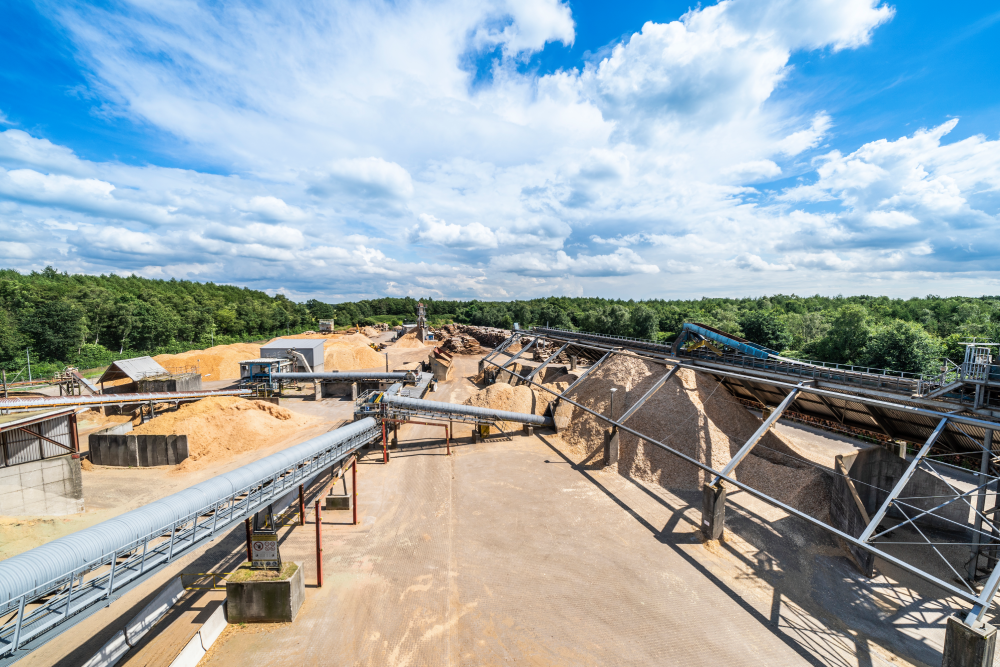
Greenhouse Gas (GHG) Emissions
-
Scope 1 (direct emissions from owned or controlled sources by the group)
-

Scope 2 (indirect emissions from the generation of purchased or acquired electricity, steam, heating and cooling consumed by the group)
-

Scope 3 (all other indirect emissions - not included in Scope 2 - that occur in the group's value chain, contem- plating both upstream and down- stream emissions)

Key Pillars of Our Carbon Neutrality Roadmap
1
Reducing Corporate Emissions:
Renewable Energy: Power Purchase Agreements (PPAs), on-site renewable energy, and green electricity utilization to phase out fossil fuels.
Energy Efficiency: implementation of a comprehensive energy efficiency plan.
Electrifying mobile sources: electric vehicles procurement for vehicle fleet and machines.
2
Decarbonizing Our Product Offer:
Raw Materials: investments and R&D projects to increase of usage of recycled and recyclable wood; assessment and trials for bio-based and lower carbon footprint resins usage.
Circular Business Models: increasing the lifetime of the products’ use; working with the value chain to increase recycling rates (thus decreasing the materials’ landfill rates).
3
Decarbonizing Logistics:
Supplier Collaboration: framework being developed to work hand-in-hand with suppliers in order to reduce carbon intensity in upstream and downstream transportation.
Vehicle Optimization: using a transport management system to optimize routes, vehicle fulfilment and backhauling.
Value Card
Carbon Neutrality
Contributing to the creation of a sustainable future with wood-based solutions
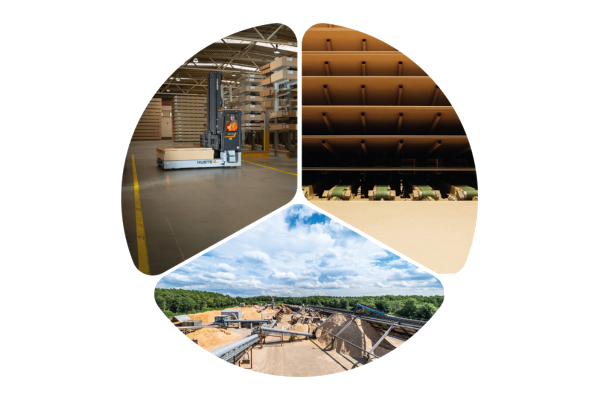
Related news
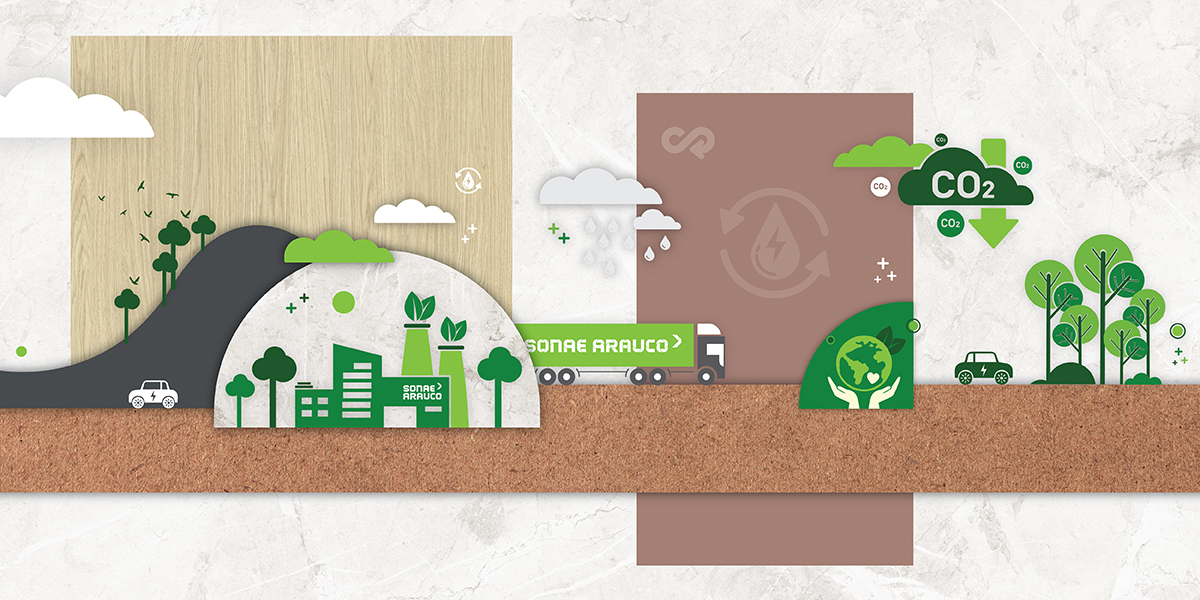
19 February 2026
Carbon Footprint Calculator by Sonae Arauco: a tool for more responsible decisions
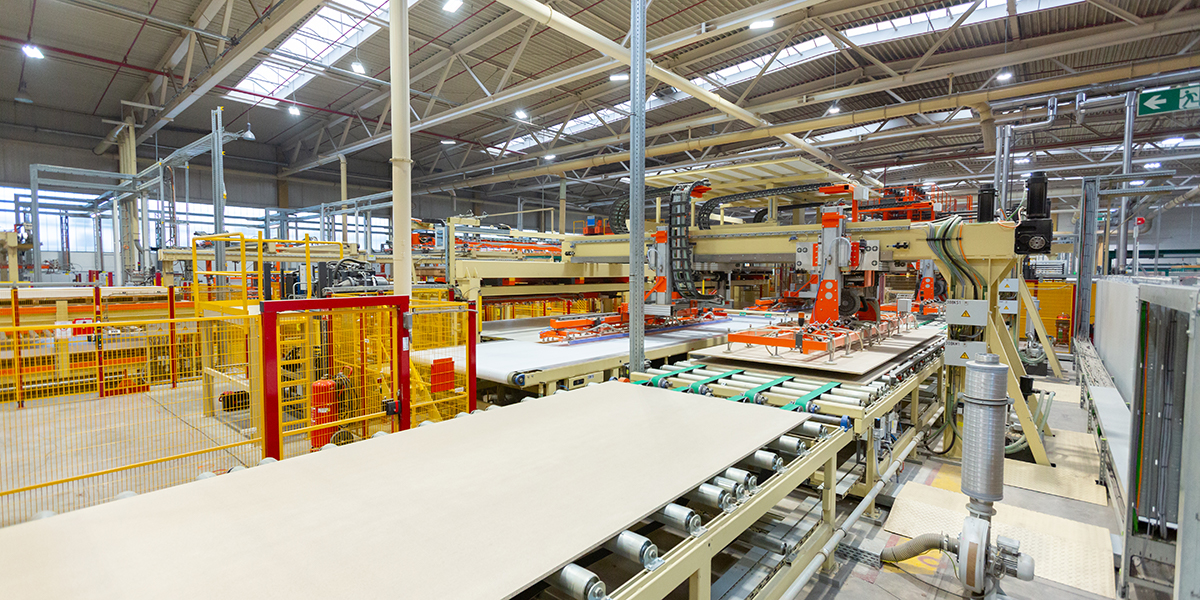
12 February 2026
Sonae Arauco endorses Antwerp Declaration leaders' call
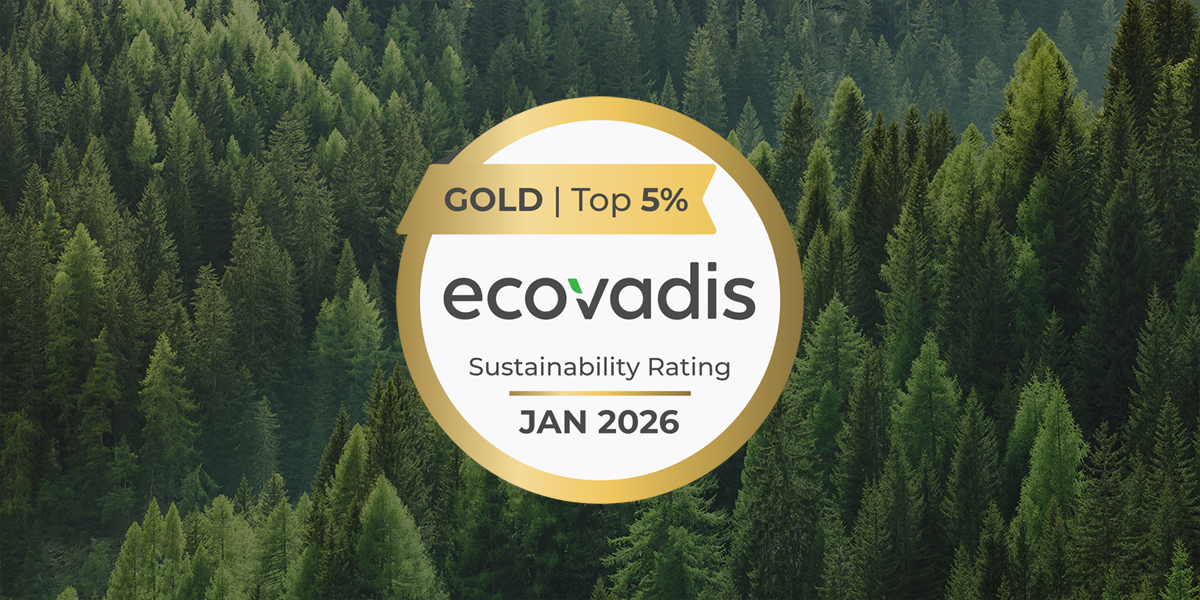
10 February 2026
Sonae Arauco is among the most responsible companies in the world, according to Ecovadis

08 January 2026
Sonae Arauco and SUSBOARD: pioneering solutions to reduce scope 3 emissions








